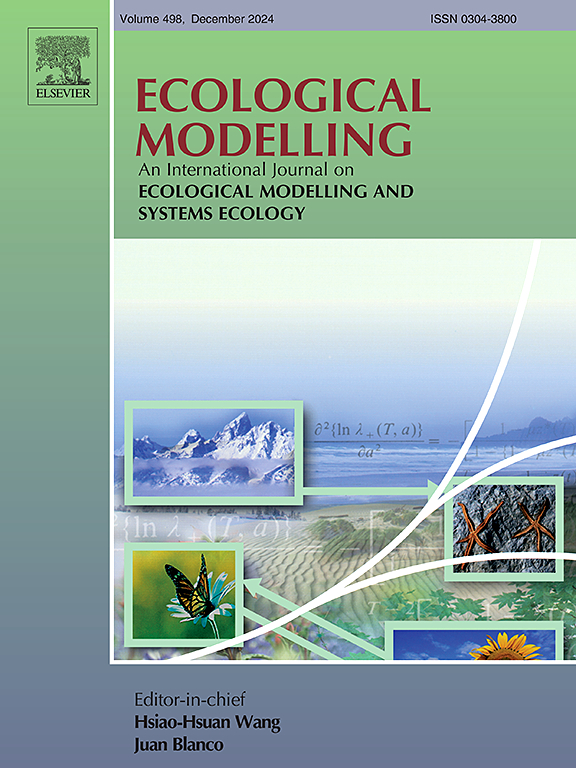基于模型的社会生态系统政策分析框架:将不确定性和参与性纳入系统动力学建模
IF 2.6
3区 环境科学与生态学
Q2 ECOLOGY
引用次数: 0
摘要
社会生态系统(SES)中出现的问题具有动态复杂性,对当前和未来的人类福祉和环境可持续性都有影响。这些问题的复杂性、社会生态系统固有的不确定性,以及讨论这些问题的多方利益相关者环境,都需要参与式建模来支持有关社会环境问题的决策。然而,这项具有挑战性的工作需要一个结构化的方法--建模周期--以促进参与和不确定性的影响,并将其作为良好建模实践(GMP)的焦点。在此,我们提出了一个利用系统动力学(SD)进行 SES 建模的综合政策分析框架。该框架整合了现有的两个建模周期,分别考虑了 SD 建模中的参与性和不确定性。它区分了三个全球建模阶段和一套工具,以解决 SES 建模中的参与性和不确定性问题。该框架有助于将全球环境管理计划纳入主流,提供了一种基于模型的结构化方法,以提高有关重大社会环境问题的政策的稳健性和社会接受度。本文章由计算机程序翻译,如有差异,请以英文原文为准。
A model-based policy analysis framework for social-ecological systems: Integrating uncertainty and participation in system dynamics modelling
Problems manifested within social-ecological systems (SES) exhibit dynamic complexity and hold implications for current and future human well-being and environmental sustainability. The complexity of these issues, the ever-present uncertainty inherent to SES, and the multi-stakeholder settings in which they are discussed call for participatory modelling to support decision-making on socio-environmental issues. Yet, this challenging endeavour requires a structured approach — a modelling cycle — to facilitate engagement with the implications of participation and uncertainty as focal points for Good Modelling Practice (GMP). Here we propose an integrated policy analysis framework for SES modelling using System Dynamics (SD). This framework stems from integrating two existing modelling cycles that individually consider participation and uncertainty in SD modelling. Three global modelling phases and a set of tools to address the participation and uncertainty features in SES modelling are distinguished. The framework contributes to mainstreaming GMP, offering a structured model-based approach to enhance the robustness and social acceptance of policies on critical socio-environmental issues.
求助全文
通过发布文献求助,成功后即可免费获取论文全文。
去求助
来源期刊

Ecological Modelling
环境科学-生态学
CiteScore
5.60
自引率
6.50%
发文量
259
审稿时长
69 days
期刊介绍:
The journal is concerned with the use of mathematical models and systems analysis for the description of ecological processes and for the sustainable management of resources. Human activity and well-being are dependent on and integrated with the functioning of ecosystems and the services they provide. We aim to understand these basic ecosystem functions using mathematical and conceptual modelling, systems analysis, thermodynamics, computer simulations, and ecological theory. This leads to a preference for process-based models embedded in theory with explicit causative agents as opposed to strictly statistical or correlative descriptions. These modelling methods can be applied to a wide spectrum of issues ranging from basic ecology to human ecology to socio-ecological systems. The journal welcomes research articles, short communications, review articles, letters to the editor, book reviews, and other communications. The journal also supports the activities of the [International Society of Ecological Modelling (ISEM)](http://www.isemna.org/).
 求助内容:
求助内容: 应助结果提醒方式:
应助结果提醒方式:


